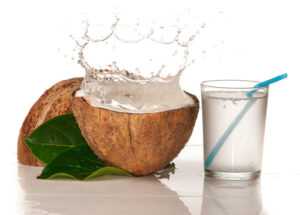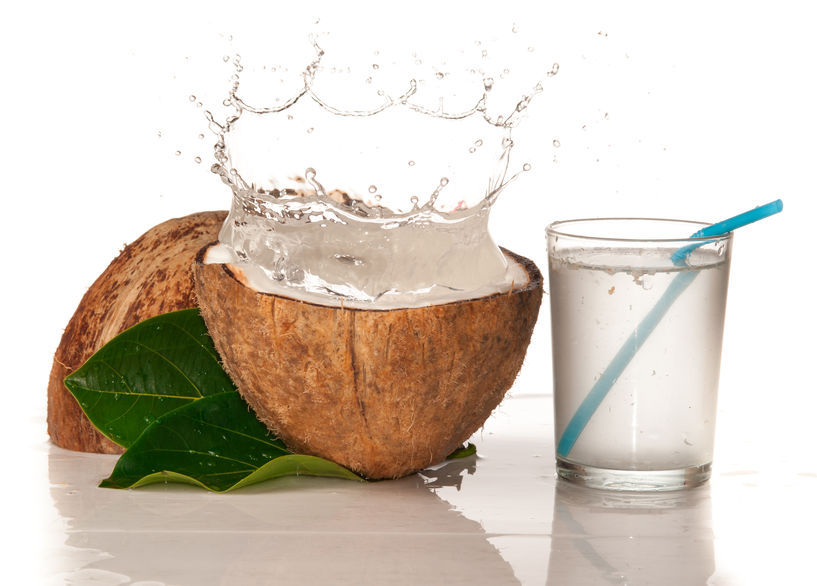
With so many varieties of hydration available on store shelves today, how do we determine if alternative water products are healthy or not? Are some of them even water at all? Let’s explore the different options and find out what’s really in these “healthy” water alternatives.
Going Cuckoo for Coconuts?
Today’s wellness-conscious consumer faces a dazzling array when selecting self-proclaimed “healthy” water options from the grocery’s shelves. Coconut water seems to be the most popular, followed by aloe water, maple water and even bamboo water. A deeper look at these unique plant-based options might make you stop and reconsider your hydration.
Coconut water is naturally sterile and packs a significant punch of potassium. As a so-called “healthy” hydration, this alternative hydration source is low in carbohydrates, scoring points in its favor when compared to sodas and sports drinks.
It is also touted for providing key electrolytes sodium, calcium, magnesium, and phosphorus. The difference ends there, however. One quick review of the label indicates the presence of significant amounts of sugar, almost as high as other beverage alternatives.
An 8-ounce carton of unsweetened coconut water has approximately 40 calories and nine grams of sugar.
Before you rush to replace sports drinks with so-called natural hydration, consider that coconut water can only temporarily hydrate athletes. Its low carbohydrate content is not sufficient to fuel most athletes, especially during their activity.
The mass marketing moguls tried to fool the ever-gullible public, claiming that the favorable components of coconut water mirror what is found in our blood plasma. While that might be interesting to ponder, real science has adamantly refuted this statement as false.
Aloe to Wet Your Whistle
The aloe plant’s claim to fame is its naturally-occurring ph-regulating compound known as acemannan. This substance makes aloe water particularly adept at regulating stomach acid and relieving heartburn.
However, there is more to aloe water than meets the eye. Owing to its bitter taste, manufacturing companies have had to add as much 24 grams of sugar into a single 8-ounce serving. This can come in the form of honey, natural cane sugar or other chemically created sweeteners.
Deception such as this fools many consumers who often do not take time to read the label on the side of the bottle. Aloe may be great for easing sunburns, but when one is thirsty, this may not be the best choice of hydration.
Bamboo–Grass or Water?
Bamboo water is a relatively new variety to the array of water alternatives, and as such has not undergone enough scrutiny to render it scientifically sound. What we do know to be true is that bamboo grass extract has been used in Asia for hundreds of years as a medicinal tool. Some brands of bamboo water actually contain this extract due to its antimicrobial properties.
As is often the case with products such as these, not all manufacturers use the same formula in their product preparation. One research project found that while some brands of bamboo water contain a mere trace of sugar in a single-serving container, others quench your thirst but bring along 16 grams of sugar! Take the time to read your labels.
Maple – It’s Not Just for Syrup Anymore
Another newcomer on the hydration scene is maple water. Analysis of its content revealed that this product is actually quite nutrient-dense; it is rich in manganese, iron, calcium, prebiotics, and electrolytes. Unlike its cousin, the maple syrup of pancake fame, this water is relatively low in sugar. Flavored varieties have also hit the market, and even these do not seem laden with excess sugars. Maybe this one comes out on top?
Returning to Mother Nature
These may be exciting options to consider when seeking to find a replacement for soda or sports refueling products. However, to date, nothing comes close to the purity and sanctity of ordinary water. For cost-conscious individuals, the ease of availability renders good old H2O a particularly attractive way to quench thirst.
Cheers!
References
https://www.verywellfit.com/the-benefits-of-coconut-water-89018
https://eatsiptrip.10best.com/2018/06/20/an-analysis-of-healthy-alternative-waters-from-coconut-to-bamboo/



